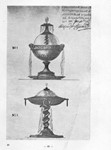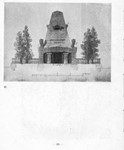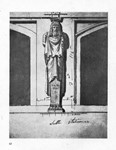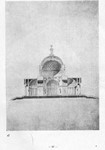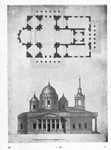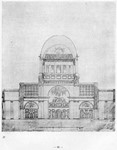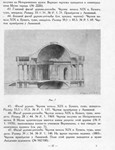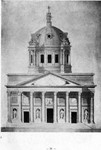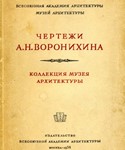Drawings Voronin
Content: text (63 symbols)
Uploaded: 05.12.2018
Positive responses: 0
Negative responses: 0
Sold: 3
Refunds: 0
$0.15
Currently, a lot of controversy and reasoning on the construction and design of old facilities in St. Petersburg and Moscow. This also applies to the works of Voronikhin. Andrei Nikiforovich Voronikhin (1759-1814) - Russian architect and painter, a representative of classicism, one of the founders of the Russian Empire. Naturally, over time, the drawings of the most prominent Russian architects turned out to be scattered among many institutions and individual collectors, partly confused and destroyed. Gathering them together, if only for publication, sometimes presents insurmountable difficulties.
The Museum of Architecture of the All-Union Academy of Architecture, having a significant collection of drawings by A. N. Voronikhin, in 1938 decided to publish them as a separate album, with links in the comments - as far as possible - to parallels stored in other places. Significant collections of Voronikhinsky drawings are in the Leningrad Museum of the city and in the museum of the Academy of Arts. Excellent copies of the drawings are available in the Hermitage, individual sheets in Pavlovsk, in the Leningrad section of the Central Historical Archive, and finally in private hands.
Basically, these drawings cover the period to the beginning of the XIX century. and refer to Voronikhin’s work in the royal residences (Petergof, Strelna, Pavlovsk, on the Pulkovo road) and on government orders, especially over the three cathedrals - Kazan, St. Isaac’s and the Cathedral of Christ, of which only the first was built according to the design of Voronikhin, and reduced form. Voronikhin paid a lot of attention to decorative art - as an exterior decoration, starting with the so-called small architectural forms and ending with the details of the decoration and interior decoration, including furniture and even utensils.
Since this edition was released in very small circulation and was not republished, its publication, we are sure, will be of interest to everyone who is interested in this topic. Particularly surprising is the presence of a large number of Masonic and pagan attributes in the drawings.
The Museum of Architecture of the All-Union Academy of Architecture, having a significant collection of drawings by A. N. Voronikhin, in 1938 decided to publish them as a separate album, with links in the comments - as far as possible - to parallels stored in other places. Significant collections of Voronikhinsky drawings are in the Leningrad Museum of the city and in the museum of the Academy of Arts. Excellent copies of the drawings are available in the Hermitage, individual sheets in Pavlovsk, in the Leningrad section of the Central Historical Archive, and finally in private hands.
Basically, these drawings cover the period to the beginning of the XIX century. and refer to Voronikhin’s work in the royal residences (Petergof, Strelna, Pavlovsk, on the Pulkovo road) and on government orders, especially over the three cathedrals - Kazan, St. Isaac’s and the Cathedral of Christ, of which only the first was built according to the design of Voronikhin, and reduced form. Voronikhin paid a lot of attention to decorative art - as an exterior decoration, starting with the so-called small architectural forms and ending with the details of the decoration and interior decoration, including furniture and even utensils.
Since this edition was released in very small circulation and was not republished, its publication, we are sure, will be of interest to everyone who is interested in this topic. Particularly surprising is the presence of a large number of Masonic and pagan attributes in the drawings.
No feedback yet
